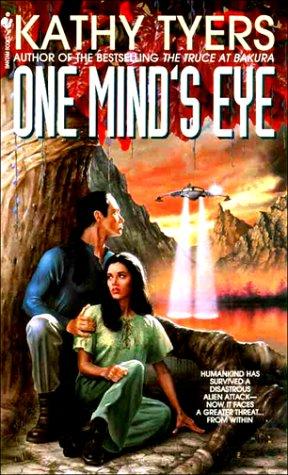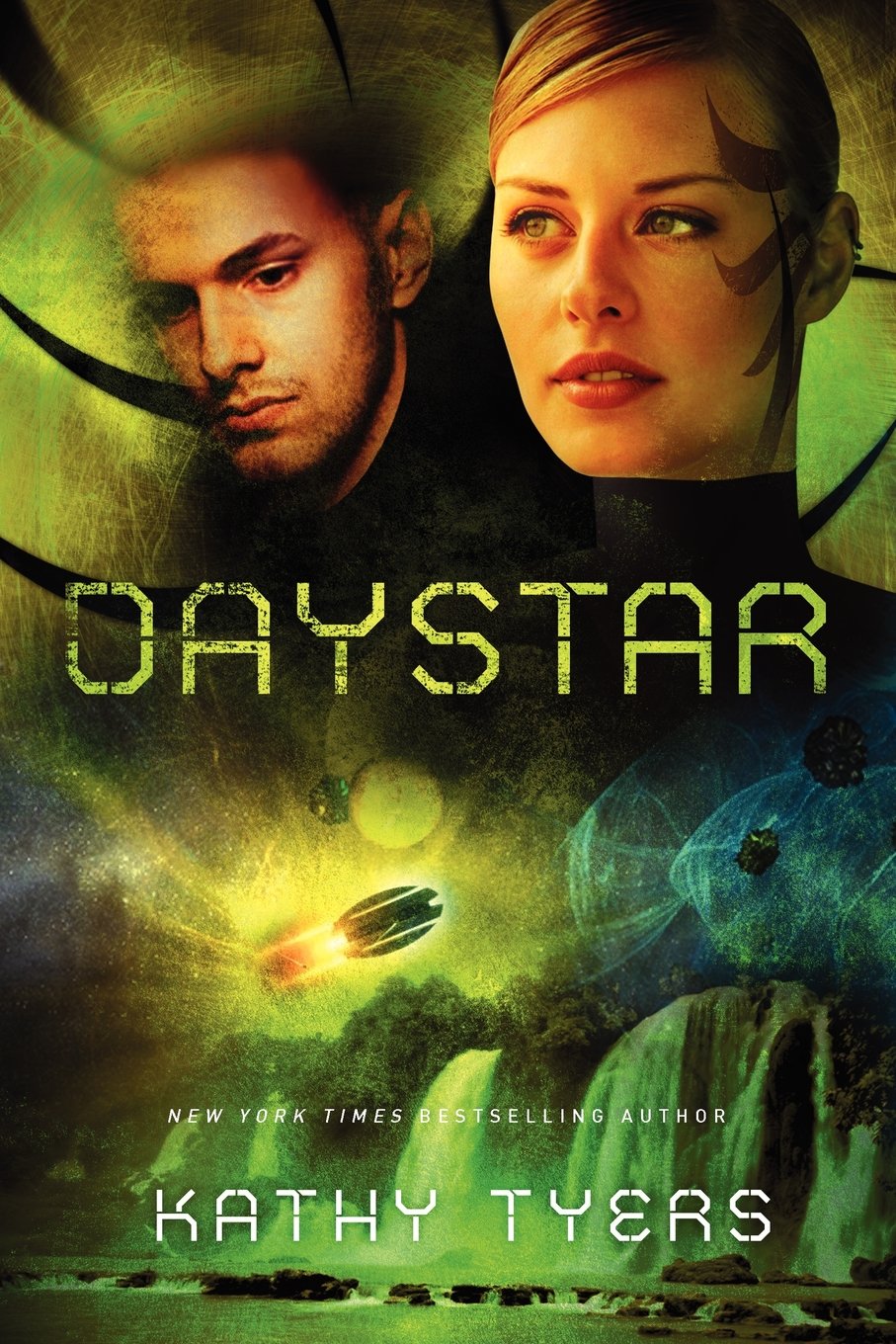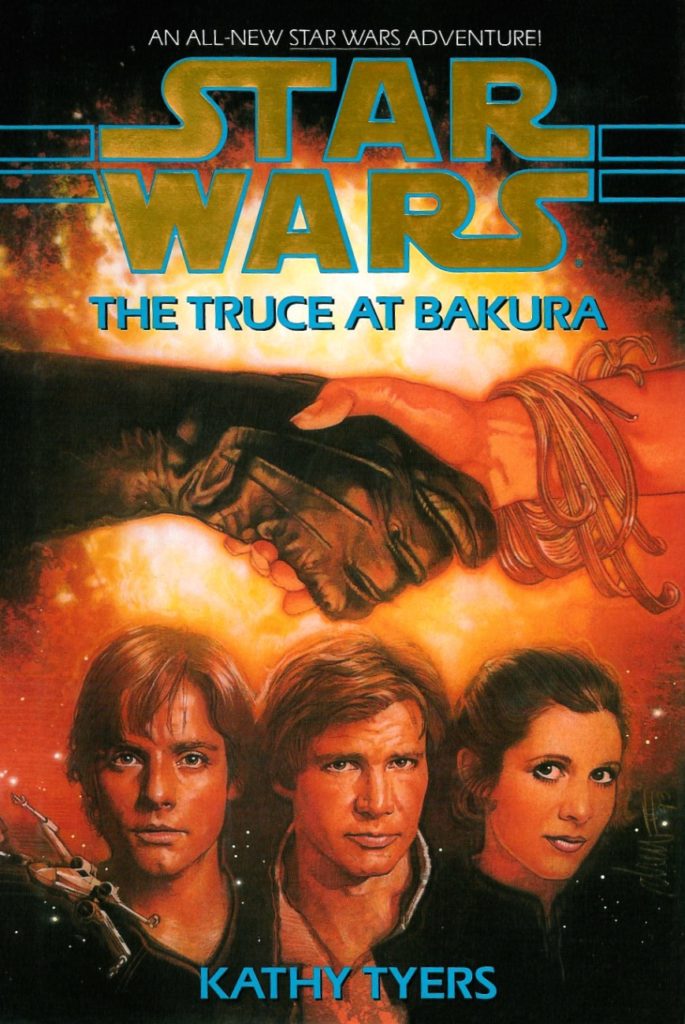Kathy Tyers: Defeating Gnostic Forces In Fantasy Fiction
Kathy Tyers has more reasons than most to track the development of the new Star Wars films.1
While Disney may be the franchise’s new owner, able to continue its story in film, Tyers was among the first authors to explore that world officially after the (chronologically) final film, Return of the Jedi. At the recent Realm Makers conference for Christian fantasy writers and fans, she wonders aloud: Will the new films keep Luke Skywalker’s marriage that Tyers happily supported, and her role as Mrs. Skywalker’s literary “midwife”?
Tyers says she doubts it. The new films will likely consider the Star Wars novels’ events as alternate timelines, bypassing Tyers’s The Truce at Bakura (1994) and Balance Point (2000).2
But Tyers is no stranger to rewriting her novels. During her 30-year career, she has adapted two of them for Christian markets. But more recently, she says, she is revising even more after God—through the teaching of J.I. Packer and others at Regent College in Vancouver—rebooted her real world.
From Firebird to Star Wars
In the 1980s, Tyers—a musician, microbiology major, and teacher—took up writing. Her first stories based on Star Wars soon grew into her own world; she brightens at the mention of writing for Luke Skywalker. But “I like my own hero better!”, she quickly adds with a laugh.
Tyers wrote other space operas and “hard” SF, and was eventually invited to become a Star Wars author.
Later a Christian agent also suggested republishing Firebird for evangelical markets. Tyers expanded the conversion storyline and themes of a special people awaiting its messiah, and followed those themes in a third Firebird book from Bethany House, Crown of Fire.
Shadows and spirits
 But Tyers is more critical of her other novels that she’s now rewriting. She explains that in One Mind’s Eye,
But Tyers is more critical of her other novels that she’s now rewriting. She explains that in One Mind’s Eye,
[W]e find out that a parasitic alien race actually exists on this higher plane of imagery, and there they spend all their time in this inner world, singing and dancing and giving glory to God in their own way. They’re totally unbodied.
I had no idea how Gnostic I had become, as essentially a person coming of age spiritually in North American consensus evangelicalism, until I got to study at Regent College.
For Tyers, the term “gnostic” meant valuing “spiritual” concepts over “physical” ones in her novels. But it also refers to her own escape into fantasy worlds during heartbreaking trials.
“I had my fiction, I had my imaginary universe,” she explains. “To me it was just as real or just as significant because after all, God is Spirit, and we worship Him in spirit. Spirit, spirit, spirit!”
Tyers now laughs at that notion. And when recalling her time at Regent, she lights up again.
Packer and the other Regent teachers “started challenging some of my assumptions,” she says. “I basically had my theology deconstructed right down to the rock bottom of what’s in the pages of the Bible, and a whole different way of looking at it.”
That included re-evaluating her views of what Christians expect in eternity. “As a new widow, it was important to me to know… God exists in heaven permanently, all right? But is that our permanent dwelling?”
Finishing the Story
“My time at Regent gave me a better confidence in… the imagination’s part of what God has given us,” she continues. “And that it’s okay to be speculative if it’s done reverently.”
That renaissance inspired Tyers to resume writing, now with her worlds transformed.
“I had thought that my calling post-Regent was going to be a crusader for fine poetry or something else about which I know nothing,” she says. “And to feel very strongly called instead to write a fourth book in the Firebird trilogy… I was delighted because there was nothing that I would have liked to have done better.”
 Tyers wrote that fourth Firebird novel as a master’s project. “The first priority for Wind and Shadow was to make it good art,” she says. “Not just a sermon masquerading as a story.”
Tyers wrote that fourth Firebird novel as a master’s project. “The first priority for Wind and Shadow was to make it good art,” she says. “Not just a sermon masquerading as a story.”
Then came Daystar, in which (slight spoiler) the long-awaited savior finally arrives.
But in her years of fiction criticism, she has read many poor fantasy-fiction-messiahs, often with clichéd miracle checklists: walking on water, raising people from death, and such. She was eager to avoid those evangelical tropes.
“The theory behind the messiah in Daystar is: If the same God appeared under very different circumstances, and was expressing the same character, the same personality, how would He express [Himself]?” Tyers says.
Still, “it was scary to put words in His mouth. And if I blew it, forgive me! I think He will.”
Future journeys
With the Firebird world concluded, Tyers wants not only to revise her existing stories, but explore new ones. Her next project involves a diverse group of Christians and a hidden “unfinished angel,” a phrase that brings “oohs” from the conference’s audience, myself included.
 “I do not believe in putting preachiness in my books,” Tyers tells me. “But I do believe that the themes that come from me, the ideas and the characters and the ways they behave, will grow out of my Christianity.”
“I do not believe in putting preachiness in my books,” Tyers tells me. “But I do believe that the themes that come from me, the ideas and the characters and the ways they behave, will grow out of my Christianity.”
I reply that even Star Wars echoes God’s truths, such as “Vengeance is mine … saith the Lord.”3 When Luke refuses to be vengeful like his enemy, the story itself steps in to punish evil.
Exactly, Tyers says, and adds that in George Lucas’s own childhood, good-versus-evil themes were strong in the World War II movies he loved—enough to overrule other religious impulses.
“Culture was so permeated with [Christian themes] that you were really taking a risk by even speculating on a different direction,” Tyers says. “Now we’re kind of taking a risk by going back to speculating in a more biblical direction.”
- Originally published at Christ and Pop Culture, Aug. 21, 2013. ↩
- Since the original version of this article, Lucasfilm confirmed April 25, 2014 that the Star Wars Expanded Universe novels would be rebranded as “Legends” —alternate realities of the fantastical story. ↩
- Rom. 12:19. ↩







































Rebranding the Expanded Universe as legends makes me a little sad. But I’ve always ignored the books I didn’t care for and counted as canon the ones that I did so I don’t suppose a label is going to change anything.
It’s interesting to read her thoughts behind her stories. I always enjoy how it adds a layer of depth while you are reading. 🙂
At the same conference I actually bought both her Star Wars novels. The Truce at Bakura is so far the only film-spinoff novel I have ever read for any film (science fiction or otherwise). I enjoyed it, though I haven’t yet read Balance Point.
I read nearly every Star Wars (& ST-TOS) novel written in the 90s and earlier. Truce was one of my favorites, next to Courtship of Princess Leia and all the Timothy Zahn books. There’s a copy in the car right now that I am working on reading aloud on road trips to my husband. 🙂
Please, don’t read Balance Point. Truce at Bakura is good, but Balance point is part of the horrible dark and edgy NJO.
I think that she has some points in the trap of Gnosticism and they are her books, so if she can find a publisher, she can rewrite them all she wishes. That said, I don’t see the theological problems if God (or a setting with a different God) were to have spiritual beings like that. It doesn’t invalidate man’s humanity. Since it is fictional, we can explore other themes and have fun with more free reign with stories.
I’m a big fan of Bakura and her Firebird books, but I really have to cringe inwardly at her attempts to redo her past works into perfect biblical allegories. Fantastical stuff without directly emulating the Scriptures, or in a fantastical world where there are different religious values, so on, isn’t a sin.
I was so glad to see a bit into the mind of Kathy Tyers. I can’t wait for this new book on “unfinished” angels!
It’s sad, isn’t it, that the reason Tyers drifted to her gnosticism is because she wanted assurance in something permanent, because the capricious transience of life had kicked her in the gut. But it’s not uncommon. I think the desire for certainty is at the root of a lot of Christian culture. The “are you really saved?” game, the faith vs works debate. Of course, I’m at the point where I think that the Fully Rely On God-type stuff is mostly a way for the certainty-hungry people to Jedi-mind-trick themselves into accepting their own helplessness.
And, hey, there’s a theme worth exploring in Christian fiction.
I really need to get ahold of some of these novels.